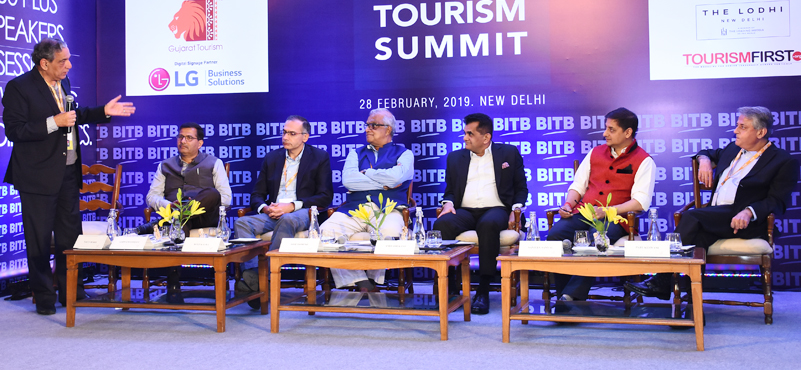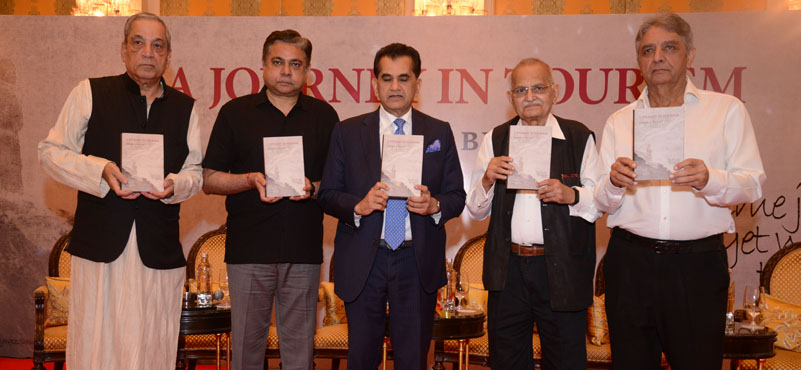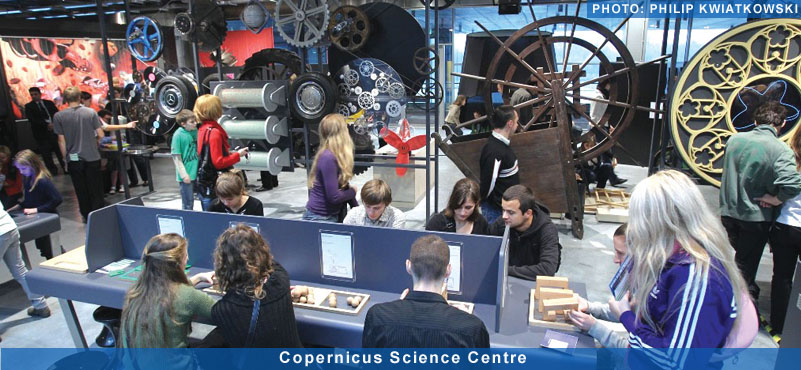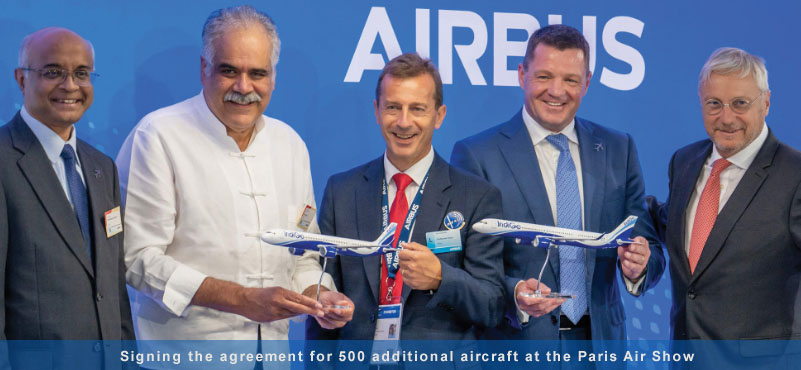The 3rd edition of India Tourism Summit was a resounding success on several counts. The top echelons of government and industry engaged in a serious dialogue on the road forward for India’s tourism. Industry and government leaders, such as Amitabh Kant, CEO, NITI Aayog; Ashwani Lohani, CMD, Air India; Yogendra Tripathi, Secretary Tourism, GoI; Sanjeev Sanyal, Principal Economic Advisor, MoF, GOI; Jose Dominic, Founder, CGH Earth; Deep Kalra, Co-founder, MMT; Patu Keswani, CMD, Lemon Tree Hotels, among several others, were in attendance.

Six sessions, with over 50 speakers, each focused on a distinct area, saw some insightful discussions, rebuttals, and affirmations. Areas including the Big Picture, sustainable tourism, inbound tourism, likely implications of the NITI Aayog document on tourism and challenges in the new-age distribution of the product were examined by panellists. The sessions also drew healthy participation from the audience.
Taking stock of the ‘Big Picture’, panellists suggested that the rules of engagement between industry stakeholders were under considerable transformation and technology was paving way for a more rationalised cost structure in distribution, weeding out inefficiencies.
A high ATF cost was restricting Indian carriers from competing globally, stakeholders reasoned. They argued that the tax regime around ATF needed to be urgently revisited. An intense “free visa rollout” competition was underway, globally, to capture a larger share of the international outbound market and India needed to further liberalise its visa regime and forfeit visa fees to create more pull and visibility, they said.

Sustainability was a vital principle for all things travel and tourism, stakeholders believed. Industry experts backed revisiting the concept of carrying capacity, looking beyond numbers, focussing on the visitor experience.
On the cultural front, a national policy on culture and heritage were cited as urgently needed measures. They mentioned that Ayurveda and Yoga were strong pillars of India’s intangible heritage and needed an assiduous promotion.
The new-age traveller was changing the rules of the game, most panellists indicated. Insiders believed that mobile-based platforms, AI and machine-learning were becoming an intrinsic part of the online outreach to the tech-savvy consumer.
India’s economic growth, coinciding with the rise of new-age travellers, were creating large-scale business opportunities in newer segments such as adventure and green tourism, some informed.

While hoteliers commended the forward-looking document released by NITI Aayog (Strategy for New India@ 75: India@ 2022), they rued the lack of any laid-out roadmap to achieve such steep goals. Regulatory costs, cost competitiveness and exorbitant real estate prices were yet to be addressed, they pointed out. They batted for pursuing mixed-use development of the infrastructure and advocated building capacity to usher a transformative change in the country. Stakeholders also concurred on the need for cost competitiveness, infrastructure and promoting growth assuming greater significance amongst policymakers.
The final session was dedicated to ‘Agents of Change’ – individuals who had catalysed the growth of tourism in the country. The illustrious panel included Amitabh Kant, Ashwani Lohani, Sanjeev Sanyal, Deep Kalra, Jose Dominic and Patu Keswani.

Amitabh Kant mentioned that the tourism industry had been passive in communicating with the government about its ability to create employment. Noting that tourism was essentially a state subject, he said that state governments and their respective tourism departments needed to play a more proactive role and understand tourism’s “multiplier effect” in creating jobs for the local population.
Ashwani Lohani listed out some of the major undertakings of the Indian Railways, in the recent past, stressing that the Railways was India’s biggest mover of people and the most natural choice of travel. He called Air India a world-known brand and said he was focussed on creating a positive team environment and a healthy work culture.
Yogendra Tripathi, Secretary Tourism, GOI, gave a patient hearing to the panellists of the first session. In his address, he noted that the government had not only accepted but also imbibed the rise of the ‘digital’ medium. He said that several schemes, positively impacting diverse sectors of tourism had been undertaken in the recent past. Despite competing claimants and finite resources, tourism was steadily gaining more prominence in the national discourse and among policymakers, he observed.

Sanjeev Sanyal, Principal Economic Advisor, Ministry of Finance, GoI, underscored the need for storytelling to attract eyeballs. He drew parallels between Singapore and India’s handling of the F1 race and narrated how Singapore managed to draw global attention by executing ‘out-of-the-box’ ideas and weaving a story around the event. He mentioned that creating the attraction of an immersive experience was core to any successful marketing strategy.
Deep Kalra, Founder, MMT, said that technology was increasingly being deployed to enhance the user’s online experience and much of the interface was now being handled by chatbots. The personalisation of the offering was going to be the next big leap in the online space, he believed. He noted that the Indian consumer was travelling unlike before and the trend was going to intensify as the ‘rented model’ made further inroads into the Indian market.

Jose Dominic, Founder, CGH Earth, emphasized that ‘ordinary was extraordinary’ and urged the industry to understand the “power of every day” in creating tourism experiences. He insisted that the power lied with small entrepreneurs and advised against standardizing the tourism product, instead advocated inculcating more local and authentic experiences.
Patu Keswani, CMD, Lemon Tree Hotels, suggested a more “appropriate” tax structure for the hotel industry, given it was no longer a luxury or high-end industry. Pointing at the high-gestation period and capital-intensive nature of the business, he rooted for a preferential access to capital and better interest rates. He said that the Indian market was under-penetrated and an enabling policy framework could double the industry’s contribution to the nation’s GDP.

BITB also honoured ‘Agents of Change’ for their contribution to the tourism sector. They received their awards from Priya Paul, Chairperson, Apeejay Surrendra Park Hotels and Navin Berry, Founder and CEO, BITB. Amitabh Kant was honoured for policy and governance; Jose Dominic was honoured for the creation of experiential tourism product; Ashwani Lohani was honoured for transportation; Patu Keswani was honoured for hospitality and alternate accommodation; and Deep Kalra for online and technology.
The evening concluded with networking cocktails and dinner. (The event was held at the Taj Mahal Hotel, New Delhi on 28th February 2019)
The event was supported by NITI Aayog and Incredible India. Air India participated as the Travel Partner. Gujarat Tourism participated as the Platinum State Partner, Nepal Tourism was the Principal Country Partner, LG participated as the Digital Signage Partner, and The Lodhi, Delhi as the Luxury Partner.




































